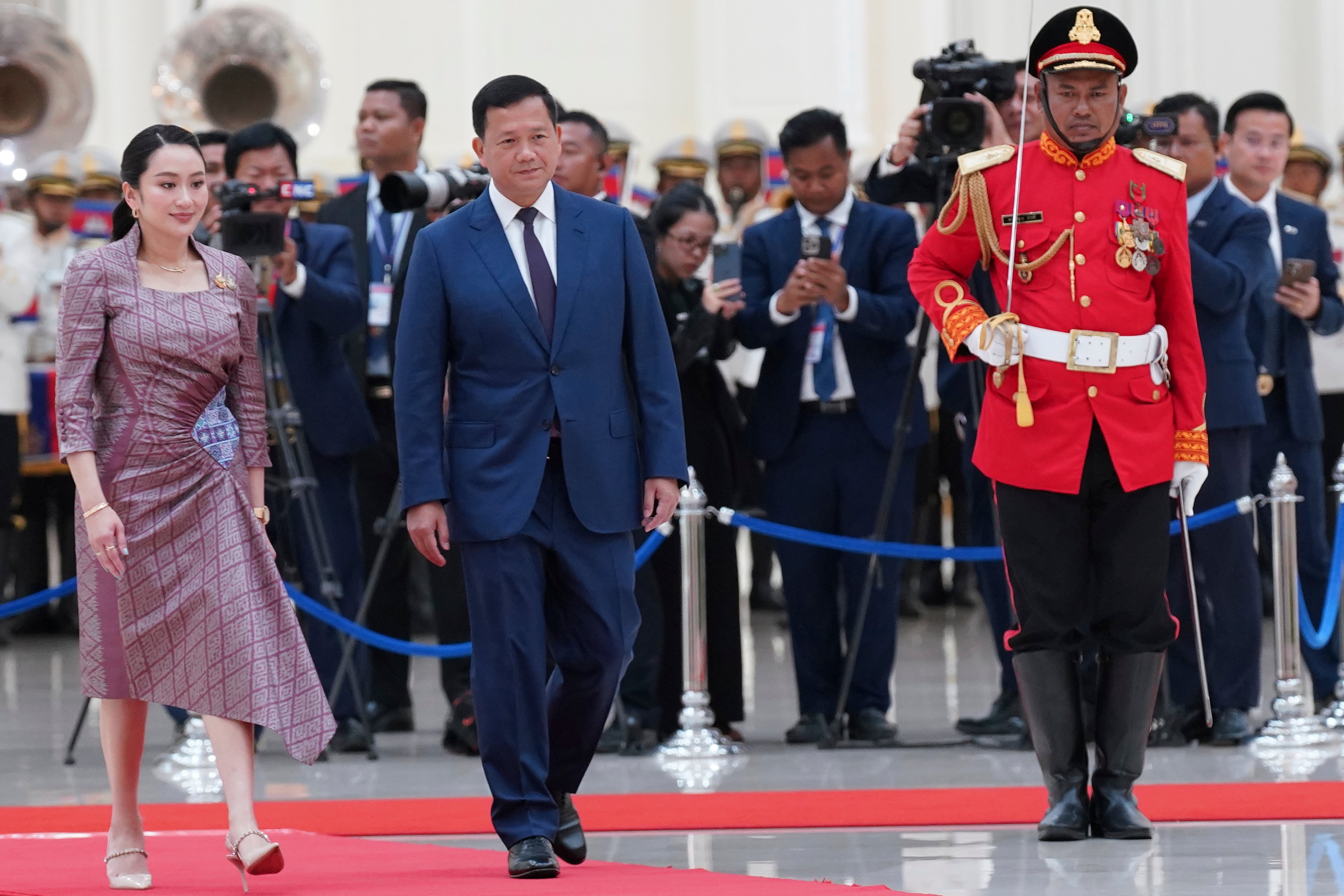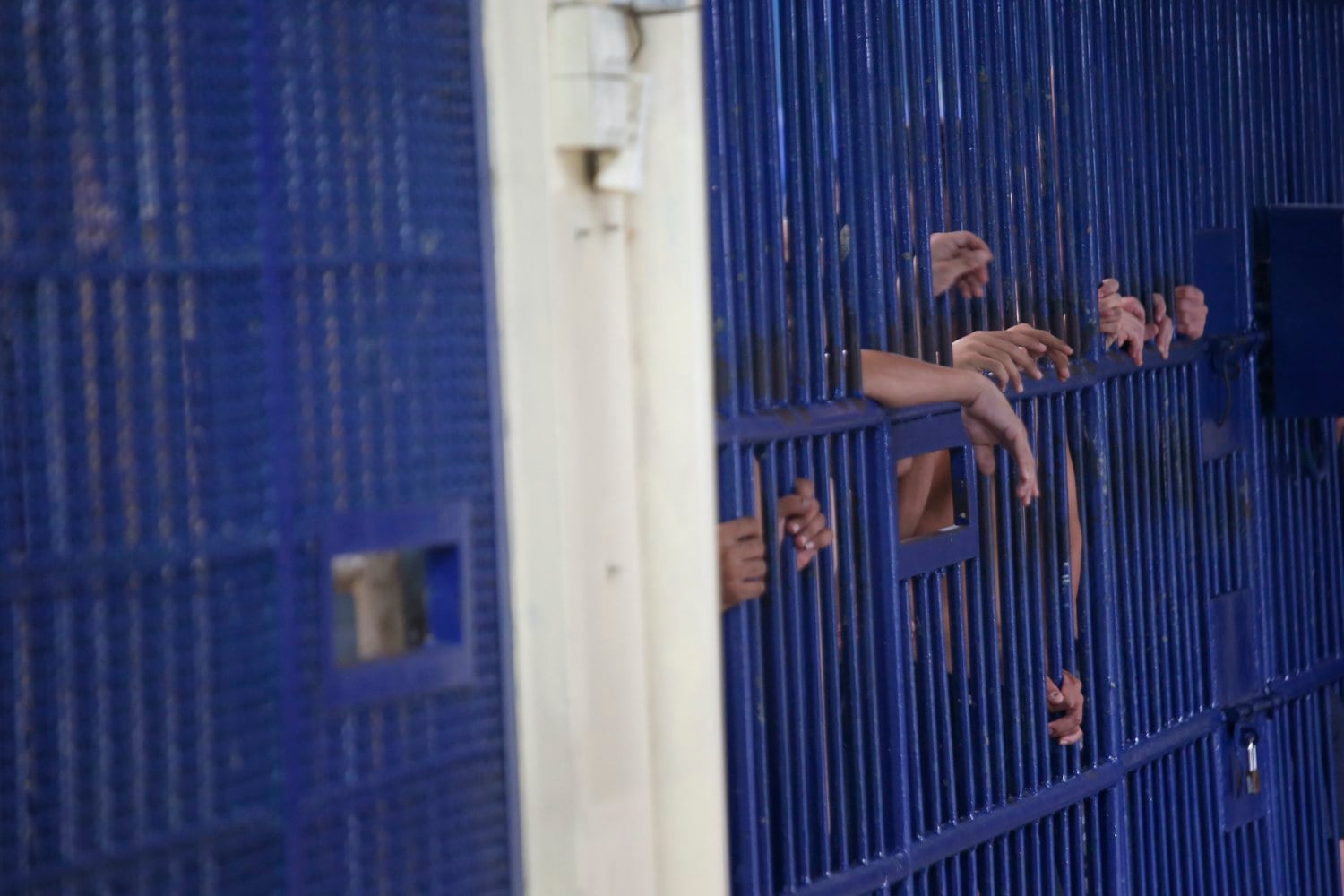See reporting on this topic in Khmer here.
A Cambodian woman who criticized Phnom Penh’s inconclusive efforts to negotiate with Washington over trade tariffs is in the cross-hairs of Cambodian police who accuse her of trying to overthrow the government and say they’ll ask Thailand to extradite her.
The woman, identified by police as Chhin Chou from Battambang province, had posted audio over video footage of Cambodia’s commerce minister on Facebook under the user name “Overseas Woman.” In it, she claimed that the first round of tariff negotiations between Cambodia and U.S. officials in Washington on May 15 had failed, and that the second round due in early June would also fail due to the Cambodian government’s human rights violations.
The United States is least-developed Cambodia’s main export market and the government of Prime Minister Hun Manet is reckoning with a 49% U.S. tariff rate on its vital footwear and textile sectors unless it can reach a deal with the Trump administration.
“Unless we follow their demands, they will not agree,” Overseas Woman posted. “We must stop illegal actions in Cambodia and ensure free and fair elections. If the Cambodian leadership cannot fulfill these conditions, then the second round of negotiations will also fail.”
Last Friday, Cambodia’s national police last week issued a statement accusing Chhin Chou of distorting facts and incitement to overthrow the government. Describing her as an opposition activist, the police said they were preparing the legal procedures necessary to cooperate with Thai authorities to have her arrested and extradited to Cambodia.
Thailand has previously cooperated in arrests of Cambodian opposition activists on its soil – typically doing so on the quiet because of criticism it faces from human rights activists and some Western governments when it deports refugees who could face political persecution back in Cambodia. In this case, Cambodian police took the unusual step of naming the suspect they were seeking.
On Monday, Police Col. Katatorn Khamtieng, deputy spokesperson for Thailand’s Immigration Bureau, told Radio Free Asia that the bureau has not yet received any directive from the Thai National Police Bureau to arrest Chhin Chou.
Ny Sokha, president of the Cambodian human rights organization Adhoc, stated that the online post does not constitute an illegal act, as it is a legitimate expression of opinion protected under the law.
“Both national and international laws, especially the constitution, clearly guarantee Cambodian citizens’ freedom to assemble and express opinions. So in my view, we must draw a clear distinction between criminal offenses and lawful freedom of expression,” Ny Sokha said.
RFA Khmer was able to contact Chhin Chou last week but she declined to make any comments, saying that she was seeking a safe location.
Cambodia’s government has demonstrated a shrinking tolerance for dissenting opinions.
According to a 2024 report from Human Rights Watch, at least 94 people were arrested by Cambodian authorities on charges of “incitement to cause serious social unrest and treason” due to criticism of the government. Of those, 59 individuals were reportedly unlawfully detained, the rights group said.
The intolerance extends to journalists such as Ouk Mao, who had reported on logging in a wildlife sanctuary in northern Cambodia. He was arrested by plainclothes police without a warrant on May 16. He was charged with incitement and defamation.
On Sunday, a judge at the Stung Treng Provincial Court ordered Ouk Mao’s release on bail. He is still facing 15 other complaints involving charges of illegal logging, encroachment, and burning of forestland for private ownership.
Ouk Mao told RFA that he will continue to protect the forest more vigorously than before and is not afraid of timber traders or those who destroy forests.
“Now I have no more fear or hesitation. I will continue protecting the forest even more strongly than before. I ask that I be given full freedom to help safeguard the forest so it can be preserved for the long term,” he said.
Pimuk Rakkanam in Bangkok contributed reporting. Translated by Poly Sam. Edited by Mat Pennington.


